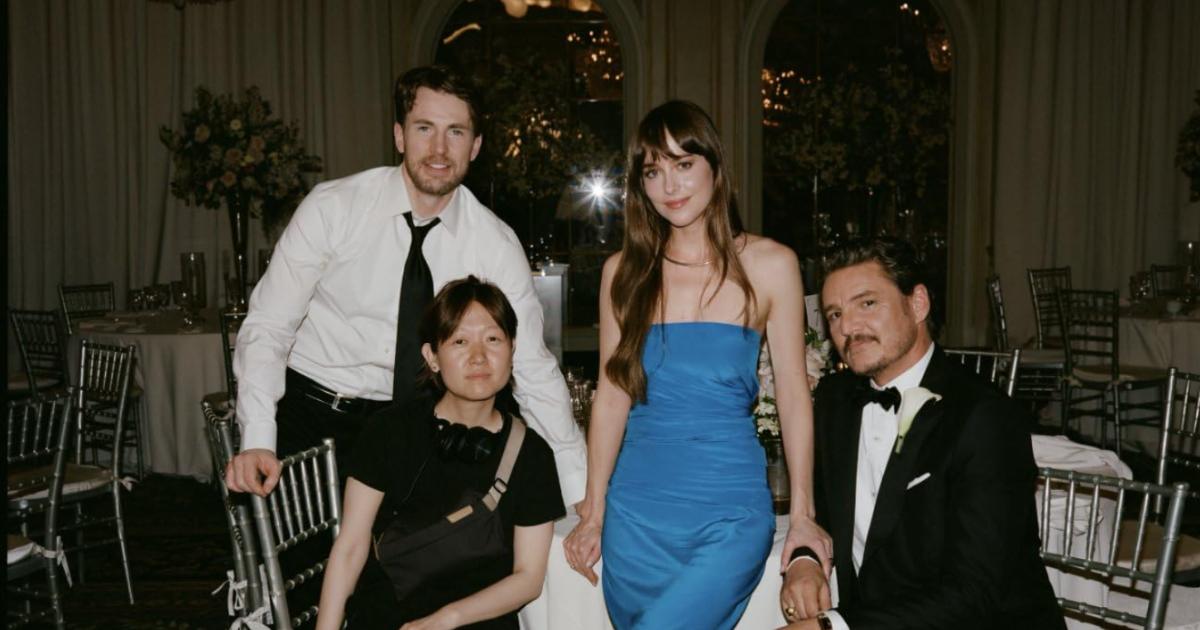Honoring Your Late Spouse in a New Relationship
Balancing the joy of a new relationship with honoring the memory of your late spouse is a deeply personal journey. Loving someone new doesn’t diminish the love you had for your spouse.
It’s possible to carry the memory of your spouse with you while also building a fulfilling future with your new partner. Here are some ways you can honor your late spouse in your new relationship:
It’s important to remind yourself that loving someone new doesn’t mean you’re erasing the love you had with your late spouse. Your heart has the capacity to hold both experiences.
Keep Traditions Alive
Continue to observe special traditions that were important to you and your late spouse. These can be small rituals—like cooking their favorite meal or visiting a place that holds special significance to you both.
Maybe there was a local festival you both looked forward to all year. Maybe they always got you flowers for your birthday. Whatever the tradition, keeping it alive in their honor is a way to feel close to your late spouse while still embracing new experiences in your life.
Including your new partner in these moments (if you feel comfortable) can help bridge your past and present, offering them insight into your experiences. Alternatively, you may choose to keep these rituals personal.
Example: On your late spouse’s birthday, you might choose to bake their favorite cake and share it with family or friends, or simply enjoy it yourself. If you always went to a particular restaurant for your anniversary, you could continue that tradition as a way of honoring that special time.
Involving your partner: If you feel comfortable, you could invite your new partner to join you in a more lighthearted tradition, such as visiting a place that held fond memories for you and your late spouse. Inviting your partner into this intimate moment can deepen your bond with one another while also honoring the past.

Create Space for Memories
Having a small dedicated space in your home for photos, letters, or mementos can help you honor your late spouse’s memory while embracing new love. This space can be as simple as a framed photo on a shelf or a small collection of keepsakes in a box. This space serves as a reminder of your shared history without overshadowing your current relationship.
Example: Create a small memory box that includes keepsakes like a favorite photo, a handwritten letter, or something meaningful from a shared trip (like a ticket stub or postcard). This allows you to privately honor your late spouse without it being a prominent feature in your home.
Involving your partner: If you feel your new partner is ready for it, you could show them this memory box and explain its significance. This might help them understand your feelings without them feeling overshadowed by your past relationship.
Volunteer or Donate in Their Name
If there was a cause or organization that was important to your late spouse, consider donating or volunteering in their honor. This act of service not only keeps their memory alive, but also gives you an active way to channel your grief into something positive.
Whether it’s an annual donation on their birthday or taking part in a charity walk, this ongoing connection to something they cared about can help you feel grounded while building a new future.
Example: If your late spouse was passionate about animal rescue, you could volunteer once a year at a local shelter in their name. Or, if they supported a particular charity, make an annual donation in their honor. You might even do this on significant dates like their birthday.
Involving your partner: You could invite your partner to join you in these activities, especially if it’s something they also enjoy or believe in. For instance, you might both volunteer at a local food bank in your late spouse’s honor, which allows you to share something meaningful from your past while also building new memories together.

You Can Honor Important Dates Privately, Too
Certain dates, like anniversaries or the day of your late spouse’s passing, may hold deep emotional significance. You can choose to quietly reflect or engage in a personal ritual on your late spouse’s birthday or anniversary, while allowing your new relationship to take center stage at other times.
Taking time to reflect privately on those days can help you process your feelings while not overwhelming your new relationship. You might light a candle, visit a special place, or simply take a moment of silence. These private acts can offer a sense of closure and reflection, allowing you to both remember your spouse and fully invest in your new relationship without feeling conflicted.
Example: On the anniversary of your late spouse’s passing, you could visit a place where you feel close to them—perhaps their favorite park or a quiet spot where you can reflect. Lighting a candle at home in their memory can also be a personal, intimate ritual.
If your new partner is aware of the significance of these dates, let them know how you plan to spend the day. You might say, “This day is always a little tough for me, so I’d like some alone time, but I appreciate your support.” This keeps communication open while allowing you the space to grieve or reflect privately.
Balancing these emotions may take time, but honoring your late spouse while embracing a new relationship is possible.
How to Talk About Your Late Spouse with Your New Partner
Being open with your new partner about your late spouse allows for transparency and builds trust. You might feel nervous that discussing your past love will cause tension, but it can actually help your partner understand your emotional journey. Sharing stories, significant experiences, and what your late spouse meant to you allows your new partner to see the person you’ve become.

This guide should help you navigate the delicate balance between honoring your past and embracing your future with your partner, keeping the conversation respectful, transparent, and focused on building trust.
Set the Stage for Open Communication
- Be Honest and Transparent: Let your partner know that you’d like to have a conversation about your late spouse. This isn’t about comparison or dwelling on the past, but about sharing an important part of your life that has shaped who you are today. You could say something like, “I want to share more about my late spouse with you, because they were a significant part of my life and have helped shape who I am.”
- Choose the Right Time: Select a time when you’re both relaxed and able to have an open, uninterrupted conversation. A setting where you both feel comfortable—such as at home or during a quiet evening—can help ease any potential tension.
- Reassure Them Early: It’s important to let your partner know that this conversation doesn’t diminish your love for them. You can say, “I want you to know that my past doesn’t take away from what we’re building together. I’m so grateful for the love we share now.”
Share Stories, Not Comparisons
- Focus on Positive Experiences: When sharing stories about your late spouse, focus on positive memories and lessons learned. Frame the conversation around how your past relationship contributed to who you are today, rather than directly comparing the two relationships. For example, you could say, “One thing I really admired about my late spouse was their patience. It’s something I’ve carried forward into my relationships and has helped me become more understanding.”
- Emphasize Growth: Acknowledge that your past relationship shaped you, but highlight how it’s helped you grow into someone who can fully embrace new love. For example, “Being with my late spouse taught me a lot about compassion, which I now bring into our relationship. I’m grateful for those lessons because they help me appreciate what we have even more.”
Acknowledge Their Place in Your Future
- Celebrate the New Milestones: Reassure your partner that while your late spouse will always be a part of your history, you’re just as committed to creating new milestones with them. For example, you could say, “I’ll always carry those memories with me, but I’m equally excited about the memories we’re making together now. Our relationship brings me so much joy.”
- Express Gratitude for the Present: Show appreciation for your partner and your current relationship. You can say, “I feel really fortunate to have experienced a meaningful love in the past, and now I’m incredibly grateful for the love we share. It’s different, but equally important to me.”
Encourage Their Involvement and Understanding
- Invite Their Questions: Give your partner the opportunity to ask questions or share their feelings about the conversation. This creates space for them to better understand your emotional journey. You could say, “If there’s anything you’d like to ask or talk about, I’m open to it. I want you to feel comfortable with this part of my life.”
- Set Boundaries if Needed: While being open is important, it’s okay to set limits on how much you share. Let your partner know if there are certain memories or feelings you’d like to keep private. For instance, “I’m happy to share a lot of my experiences, but there are some things that I hold close. It’s just part of how I process my grief.”
Revisit the Topic When Needed
- Keep the Conversation Ongoing: Let your partner know that this doesn’t have to be a one-time conversation. As your relationship grows, you may want to revisit the topic or share new memories as they come to mind. You might say, “I don’t want this to be the only time we talk about this. If anything comes up or if you ever want to know more, I’m open to it.”
- Balance the Past and Present: As time goes on, find moments to naturally weave in stories about your late spouse while also celebrating your current relationship. You can acknowledge both by saying something like, “I’m so glad to have those memories from my past, but I’m equally glad that we’re making new memories that are special to us.”
Key Phrases You Can Use
Introducing the Conversation
- “I’ve been wanting to share more about my late spouse with you, since they’re such an important part of my life story. It’s not something that takes away from what we have now—I just think it’s part of understanding who I am.”
- “There’s something I’ve been meaning to talk about. My late spouse was a big part of my life, and I’d love to share a little more about that with you, but only if you’re comfortable.”
Sharing Memories Without Comparison
- “One thing I really appreciated about my late spouse was how calm they were in tough situations. I feel like it’s helped me stay grounded in our relationship too.”
- “I have a lot of fond memories from my marriage, and it taught me so much. I think those lessons really help me value what we have now.”
Balancing the Past and Present
- “I’ll always carry those memories with me, but I’m so excited about what we’re building together. You bring something totally new and special to my life.”
- “My late spouse will always have a place in my heart, but what we have is just as meaningful, and I’m really grateful for that.”
Reassuring Your Partner
- “I want you to know that talking about my past doesn’t take away from what we have. I’m fully in the present with you, and I’m really excited for our future.”
- “I’m so happy to have had those experiences, but they don’t take away from how much I appreciate us and what we’re creating together.”
- “Thanks for listening. It’s important to me that you know where I’ve come from, but I also know we’re building something amazing together, and that’s where my focus is.”
Encouraging Questions or Conversation
- “If you ever have any questions or if something I say brings up anything for you, feel free to ask. I don’t want there to be any awkwardness about it.”
- “I’m always open to talking more about this, but only if it’s something you’re comfortable with. I just want you to feel like you can ask me anything.”
- “I don’t want this to be something that causes any tension between us. If you ever feel uncomfortable or have questions, let’s talk about it. I’m here for you too.”
Key Takeaways
It’s important to remind yourself that loving someone new doesn’t mean you’re erasing the love you had with your late spouse. Your heart has the capacity to hold both experiences. Here are a few things to remember as you move forward:
- Loving someone new doesn’t diminish the love you had for your late spouse. It’s possible to honor their memory while building a new relationship.
- Keeping traditions alive can offer a meaningful way to stay connected to your late spouse, whether privately or with your new partner’s involvement.
- Creating a small space for memories or volunteering in your late spouse’s name can help you honor their legacy while embracing new love.
- Open communication about your late spouse with your new partner fosters trust and transparency without overshadowing your current relationship.
- Finding a balance between past memories and present joy is a gradual process, and it’s okay to honor important dates privately if needed.
While your late spouse will always be a significant part of your life, your new partner can bring fresh joy and fulfillment. By acknowledging this, you can give yourself permission to embrace the future. Your late spouse’s memory will always be with you, but it’s possible to love again in a way that enriches your life and honors your past.









